Perform your Hajj in 2026 with the Hisar Europe Difference!
Plan your Hajj with confidence with Hisar Europe, winner of the ‘Best Hajj Service’ award in 2023, 2024 and 2025.
Nusuk - Hajj
2026 Packages
16 Nights in the Holy City of Mecca
12.05.2026 - 03.06.2026
View Al Madinah Hotel
Mecca al-Mukarrama
Razana Al Rawdha Hotel
Nozol Royal Hotel
Mecca al-Mukarrama
Razana Al Rawdha Hotel
12 Nights in the Holy City of Mecca
18.05.2026 - 02.06.2026
16 Nights in the Holy City of Mecca
18.05.2026 - 06.06.2026
View Al Madinah Hotel
Mecca al-Mukarrama
Razana Al Rawdha Hotel (during Hajj)
Sheraton Hotel (after Eid al-Adha - days of Tashriq)
11 Nights in the Holy City of Mecca
18.05.2026 - 01.06.2026
View Al Madinah Hotel
Mecca al-Mukarrama
Sheraton Hotel
8 Nights in the Holy City of Mecca
21.05.2026 - 01.06.2026
Maden Hotel
Mecca al-Mukarrama
Hyatt Regency
Register now for Hajj 2026 with Hisar Europe. We guide you through the Nusuk verification, eWallet loading and package selection processes; payment is made directly through Nusuk when sales open.
3 Simple Steps to Register
1
Stay up to date
As our preparations for Hajj 2026 continue, we invite you to join our official WhatsApp channel for important announcements, updates and guidance.
2
Fill in the Form
Sign up to receive the latest information about Hajj 2026 and join the Hisar Tour Hajj family!
3
Official Registration
To reserve a Hajj package, you must register on the NUSUK Hajj platform. If you need assistance, you can contact our team.
?
Still need help?
Do you have questions about Hajj 2026, the Nusuk platform, or our packages? Schedule a free online consultation with our representative—we are here to guide you every step of the way.
2026 Nusuk
Hajj Webinars
Webinars
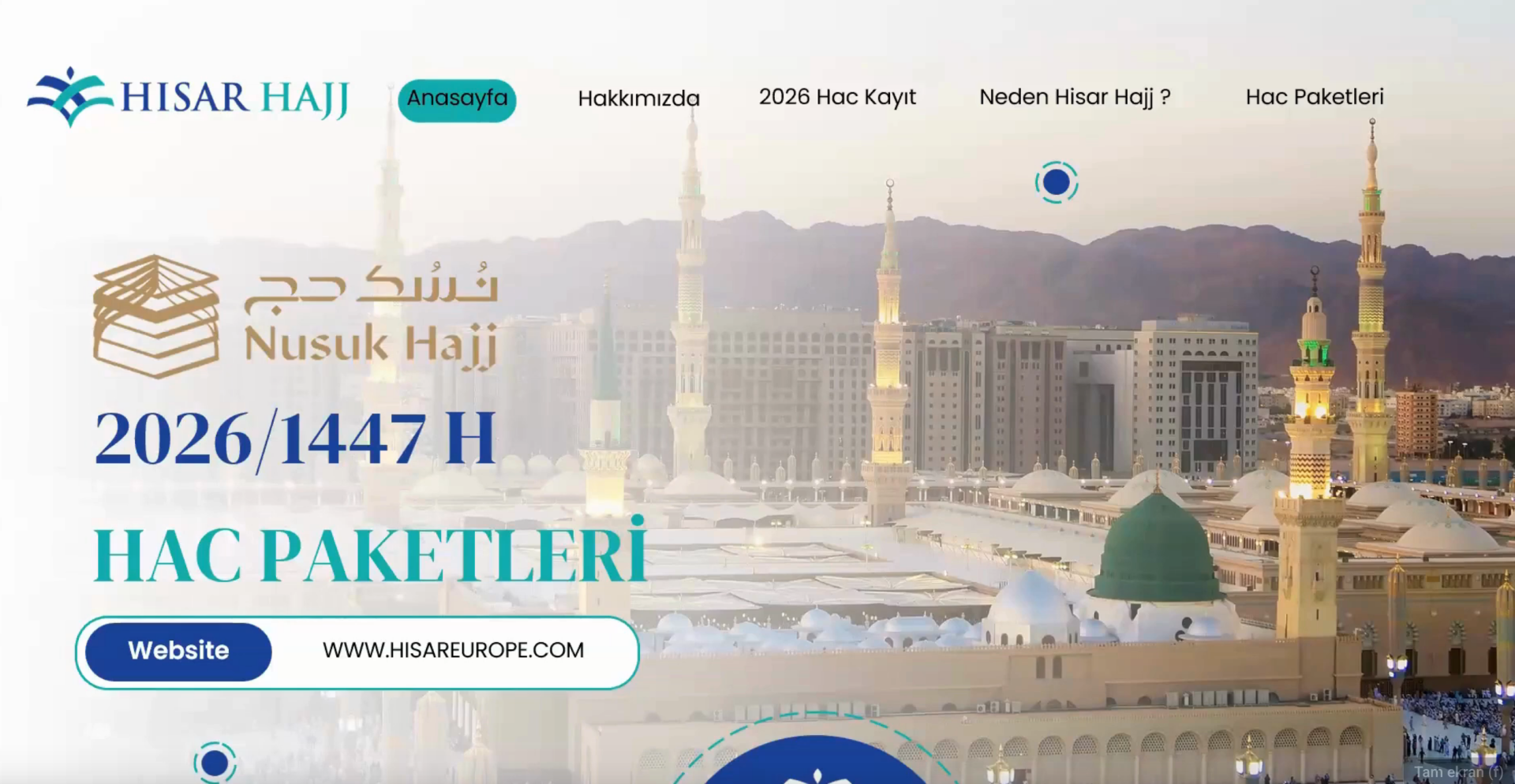












Experiences of Our Pilgrims
And perform Hajj and Umrah fully for the sake of Allah (Surat al-Baqarah, verse 196).
2025 Hajj Memories
Medina al-Munawwara

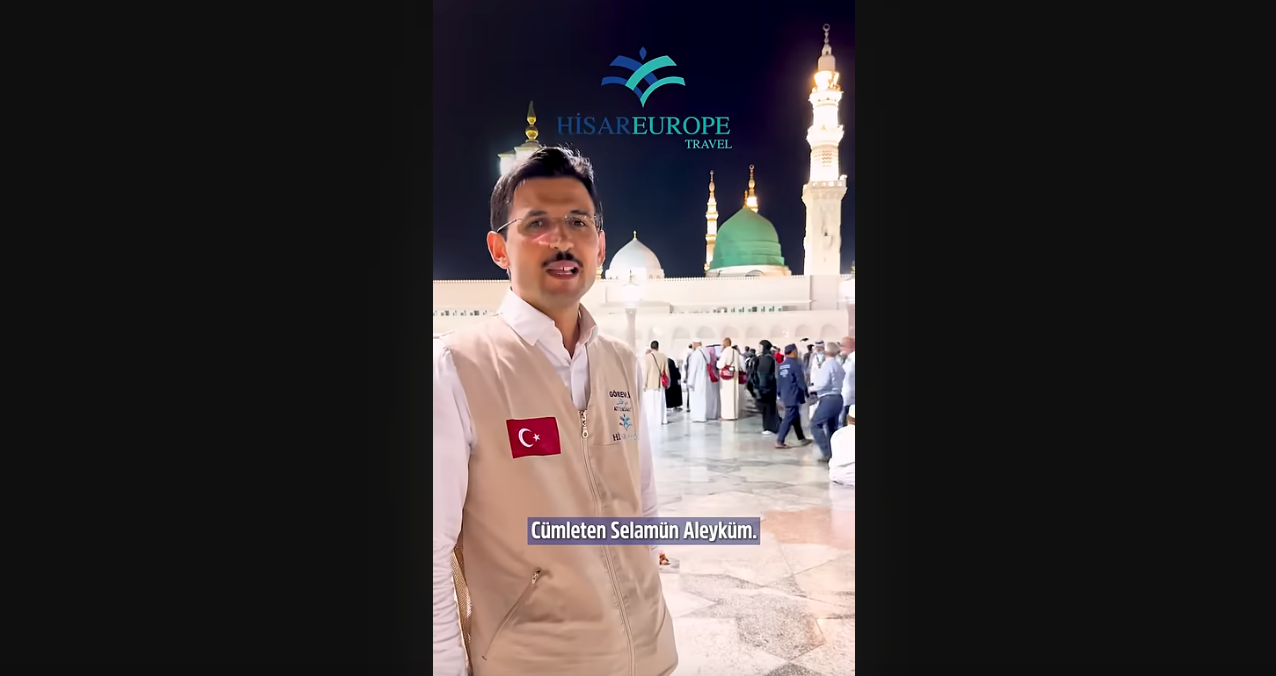








Makkah al-Mukarrama
Makkah al-Mukarrama







Hac Deneyimleri: Hacıların Hayatlarını Değiştiren Yolculuklarından Paylaşımlar
Experiences


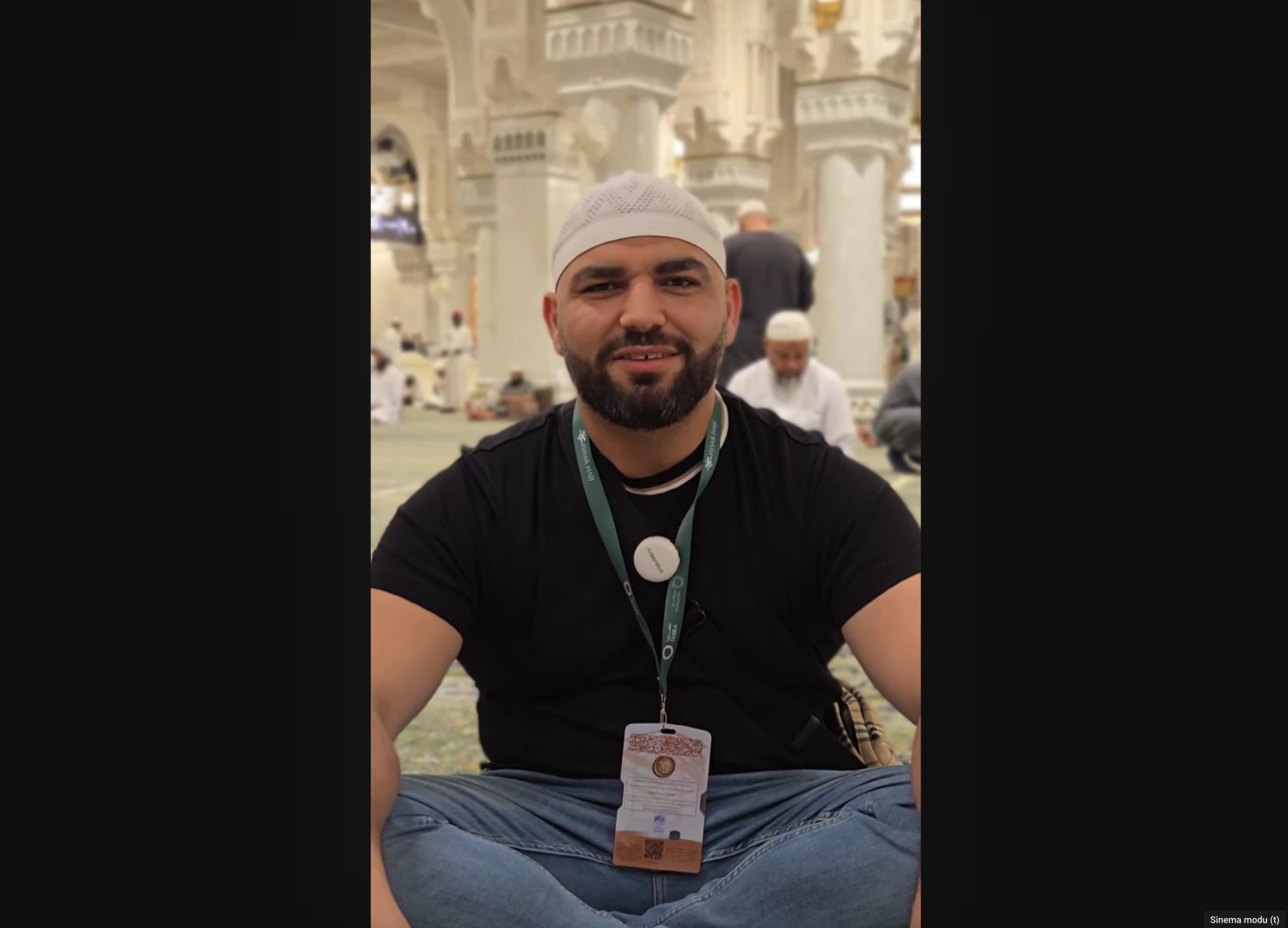
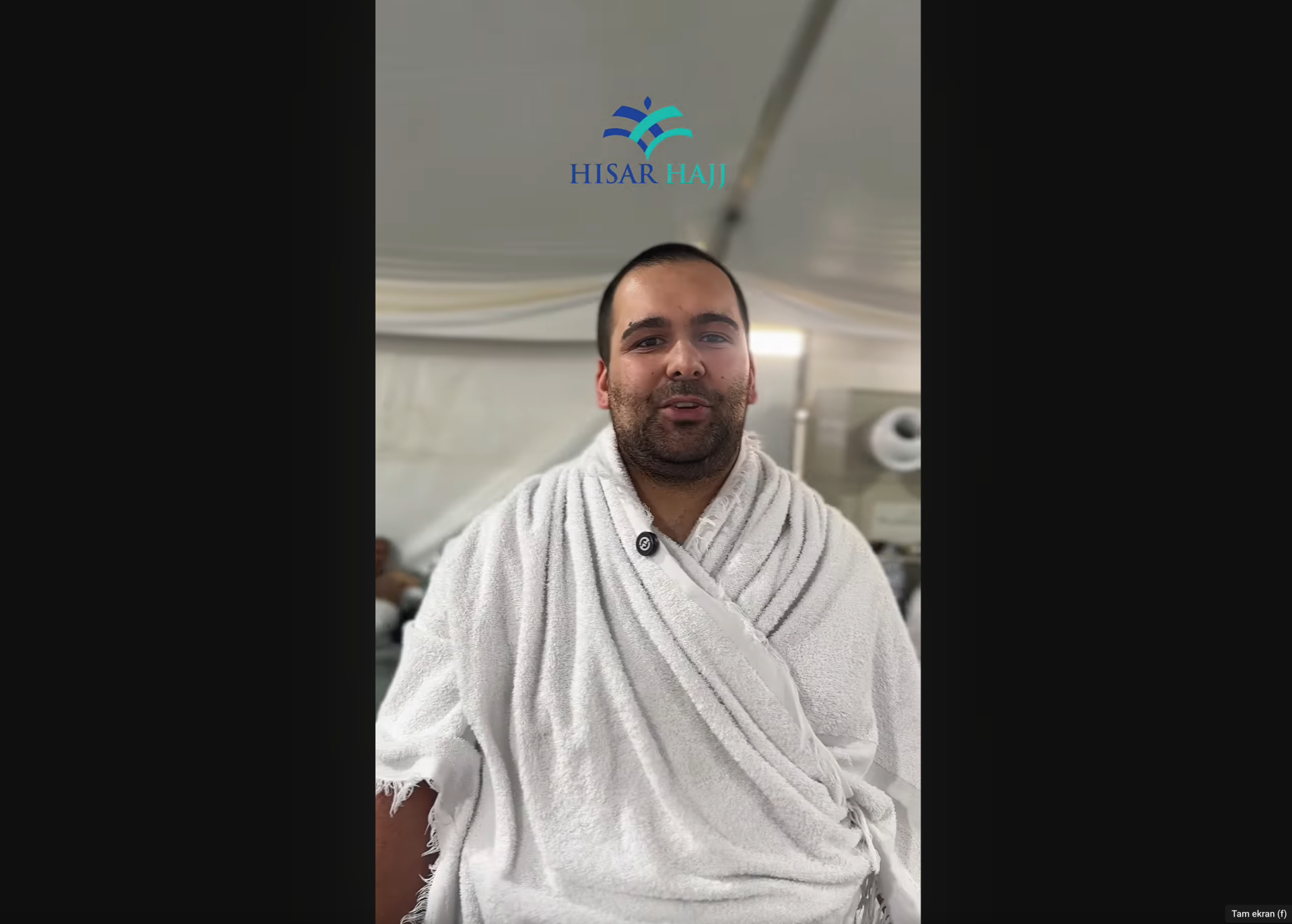





Hajj 2026
MAKE YOUR PRELIMINARY REGISTRATION
Hajj 2026 Packages
Embark on the most special spiritual journey of your life with our all-inclusive Hajj 2026 packages, carefully prepared for comfort, convenience and spiritual peace. Whether you prefer luxury or economy, short or long stays, we offer the option that suits you best.
Features that Set Our Packages Apart – Hajj 2026:
- All-Inclusive Service – Everything is included, from visa procedures to return flight tickets, accommodation in Mecca, Medina and Mina, local transport, meals and religious guidance support throughout the journey.
- Proximity to the Hotel – Stay at hotels just a few steps away from the Masjid al-Haram for easy access to tawaf and prayers, or choose our luxurious 5-star hotels equipped with all amenities for the utmost comfort.
- Short and Long-Term Packages – Flexible durations to suit your schedule: “Short Hajj” options for those with limited time, or longer Hajj journeys offering greater spiritual depth and relaxation.
- Luxury and Premium Options – VIP service, high-end hotels, special services, private transport and attentive group guidance; ideal for those seeking extra comfort and convenience.
- Affordable & Economical Options – Transparent pricing, no hidden fees; shared rooms or economy class hotels are offered with guaranteed security, hygiene and basic services.
- Rehberlik ve Destek – İhram, Tavaf, Sa’y, Arafat, Müzdelife ve Cemarat taşlama gibi menasiklerde size eşlik edecek uzman âlimler, grup liderleri ve destek personeli; ayrıca 7/24 acil durum yardımı.
- Seamless Transportation – Air-conditioned coaches, private services, and uninterrupted transfers between Mecca, Medina, Mina, and other pilgrimage sites.
- Spiritual Wealth – Visiting opportunities, sermons, prayers with the congregation, educational programmes that will increase your spiritual connection and knowledge
- Early Registration and Limited Places – Avoid disappointment by booking early. Registration will open soon through official channels; packages are selling out fast due to limited availability and high demand.
- Security, Cleanliness and Comfort Guarantee – We prioritise your health: clean accommodation, reliable medical support, relaxation areas and well-organised logistics.
Why should you choose us for Hajj 2026?
- Decades of experience in organising reliable Hajj pilgrimages.
- Verified and legal Hajj agents and service providers (in compliance with Nusuk, the Saudi Ministry of Hajj and Umrah, and local authorities).
- Clear terms and conditions, cost details specified at the outset.
- Özel hazırlanmış paketler: aileler, yaşlılar, ilk kez hacca gidenler veya sık gidenler için.
Don’t delay—your sacred journey deserves the best.
Register now for Hajj 2026 and secure your preferred package. Focus on your worship, and let us take care of the details. May your Hajj journey be safe, accepted, and bring spiritual transformation to your life.
Understanding Packages and Categories: What Makes Them Different?
All-Inclusive Packages
All-inclusive packages provide pilgrims with all the essential services they need during their Hajj journey, ensuring a seamless and smooth experience. These services include visa processing, flights, accommodation in Mecca and Medina, catering services, inter-city transportation, Mashair services, and guidance.
✦ Flights ✦ Accommodation ✦ Transport ✦ Transport ✦ Visa Procedures ✦ Catering Services ✦ Tour Guide
✦Verification of Required Documents
Change
Change Packages offer pilgrims accommodation close to the Holy Mashair areas during the Hajj season, guaranteeing both comfortable accommodation and easy access to their belongings. Additionally, these packages provide a second accommodation option in Mecca, usually near Al-Masjid Al-Haram, before or after the Hajj season, ensuring easy access to prayers.
Non-relocatable
Non-relocatable packages provide pilgrims with a single accommodation option during their stay in Mecca before and after performing the Hajj rituals in the Holy Mashair areas. This offers pilgrims convenience as they do not have to move during their stay in Mecca.
The accommodation options offered in the packages have been prepared according to the different expectations of pilgrims.
Options range from 5-star hotels offering the highest level of luxury and comfort, to 4-star hotels balancing luxury with practicality, to 3-star hotels or residences meeting basic needs. This last option is particularly suitable for those seeking a longer-term and relatively economical experience.
Mecca Accommodation: Packages offer pilgrims the option of staying at a single hotel in Mecca before and after the Hajj season (Non-Shifting) or the flexibility to change hotels in Mecca before or after the Hajj season (Shifting).
Packages and associated prices are organised according to duration. The minimum duration for Mashair packages is 6 days, 10 days for Non-Shifting packages, and 14 days for Shifting packages. Service providers may offer extended accommodation options within their packages to provide pilgrims with choices suited to their preferences.
Category Classifications
These various factors led to the implementation of seven separate categories this year, with the aim of meeting the different needs of pilgrims and enhancing their overall experience.
- 5-star hotel in Medina Münevvere
- 3-star hotel in Mecca
- 15 Nights or 22 Nights
- Al Muasim Tent
- Medina al-Munawwara: 5-star hotel
- Mecca: 3-star hotel during the Hajj season
- Mecca: A five-star hotel in the Masjid al-Haram area after Eid al-Adha and the days of Tashriq
- 19 Nights
- Al Muasim Tent
- Medina al-Munawwara 5-Star Hotel
- Mecca 5-Star Hotel (Mecca area)
- 14 Nights
- Al Muasim Tent
- Medina al-Munawwara 5-star Hotel
- Mecca 5-star Hotel (Mecca area)
- 11 Nights
- Majar Al Kabsh Tent
To make it easier for pilgrims to choose their accommodation and to take into account the proximity to the Masjid al-Haram and the Meşair areas, Mecca has been divided into different districts. Each district has its own unique characteristics to meet the various needs of pilgrims.
This area, one of the closest to the Sacred Mosque, mostly offers courtyard views and provides pilgrims with walking distance access.
This area encompasses the surroundings of Area A and offers proximity to the Masjid al-Haram, although it is slightly further away compared to Area A. Nevertheless, it is possible to reach the Masjid al-Haram on foot. Additionally, some accommodation facilities provide a shuttle service to the Masjid al-Haram during prayer times to facilitate pilgrims.
This area covers the largest part of Mecca but is not within walking distance of the Masjid al-Haram or the Sacred Mosques. However, it offers a variety of accommodation options, and some establishments provide a shuttle service to the Masjid al-Haram during prayer times.
This area is located close to the Sacred Sites and offers pilgrims easy access during their stay in Mina.
Al-Masjid Al-Haram
Jamarat
Mina
Muzdalifah
Arafat
A bed in a single room
One bed in a shared double room
One bed in a shared room for three people
One bed in a shared room for four people
The distance between Mecca and Medina is approximately 450 kilometres. This journey, which is usually undertaken by coach – the preferred mode of transport in most packages – generally takes up to 9 hours. The coaches used are equipped with modern facilities and are specially designed to ensure pilgrims can travel comfortably and conveniently throughout the long journey.
Mecca–Medina High-Speed Train (Haremeyn)
Aircraft
Shuttle bus
Private Vehicle Services
Additionally, service providers may opt for alternative options such as domestic flights or the Haremeyn High-Speed Train for inter-city travel. These advanced transport alternatives not only provide a comfortable journey but also enhance the overall travel experience for pilgrims travelling between Mecca and Medina on a fixed schedule.
Gallery
And perform Hajj and Umrah fully for the sake of Allah (Surat al-Baqarah, verse 196).
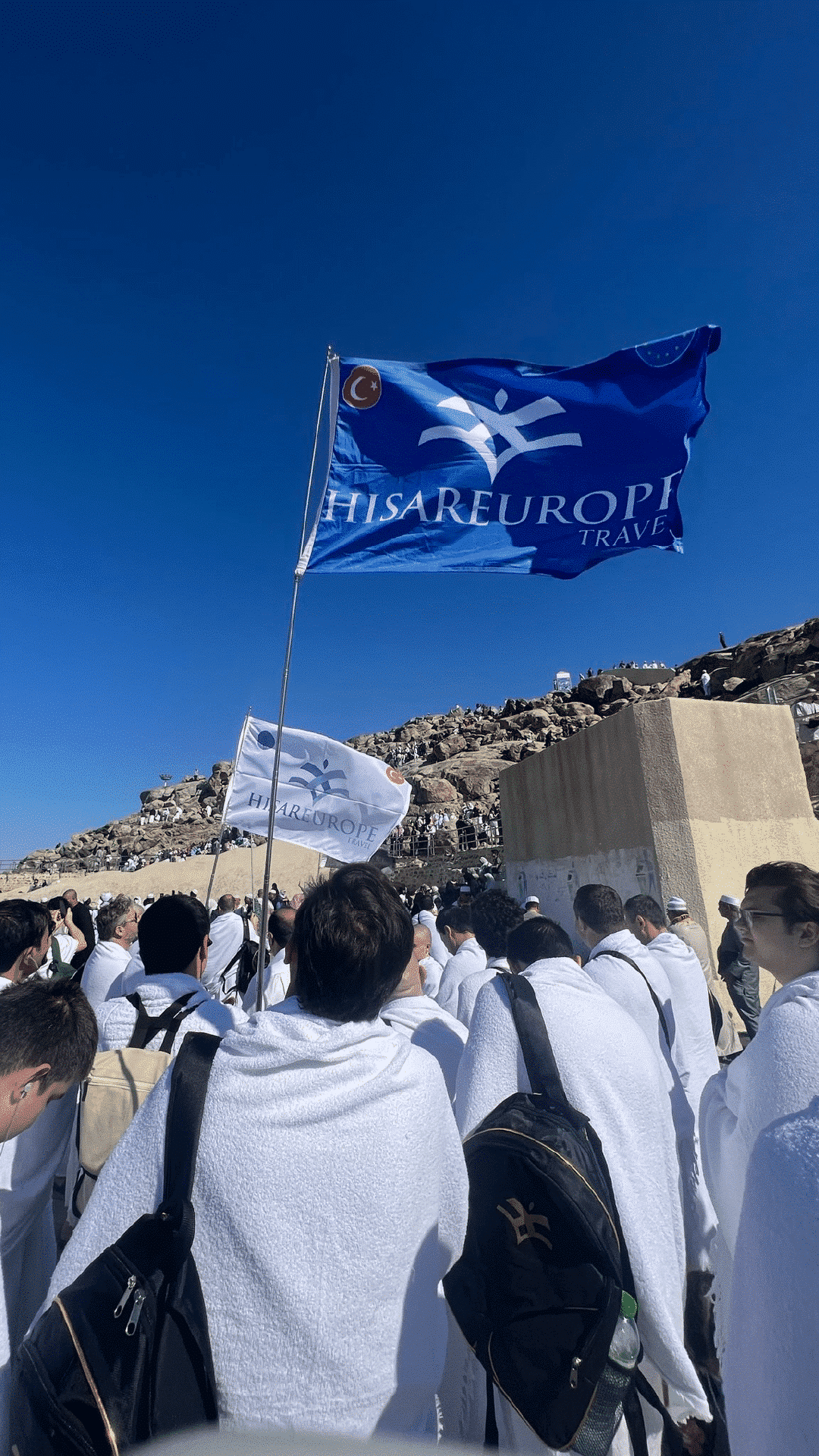

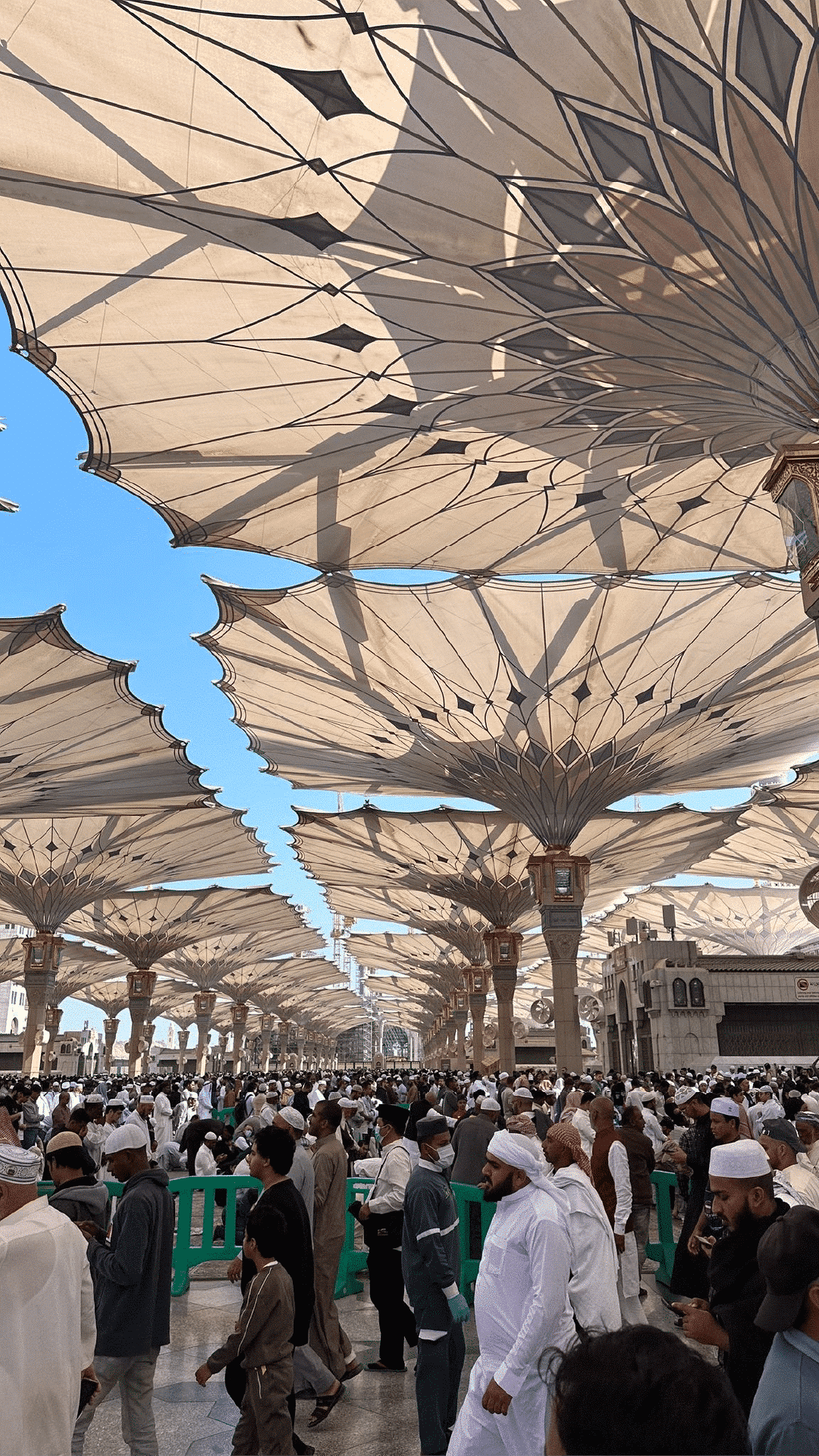
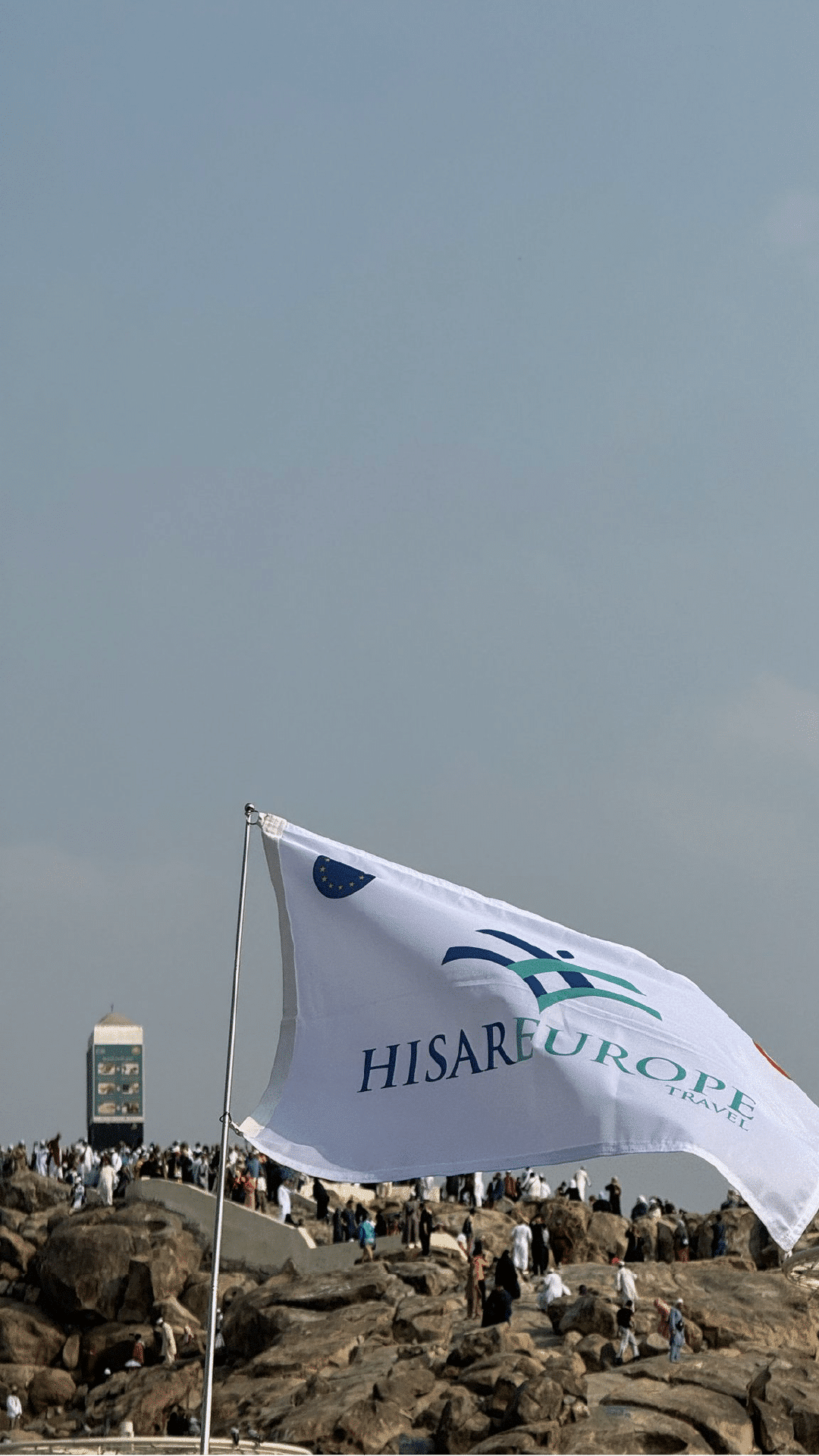
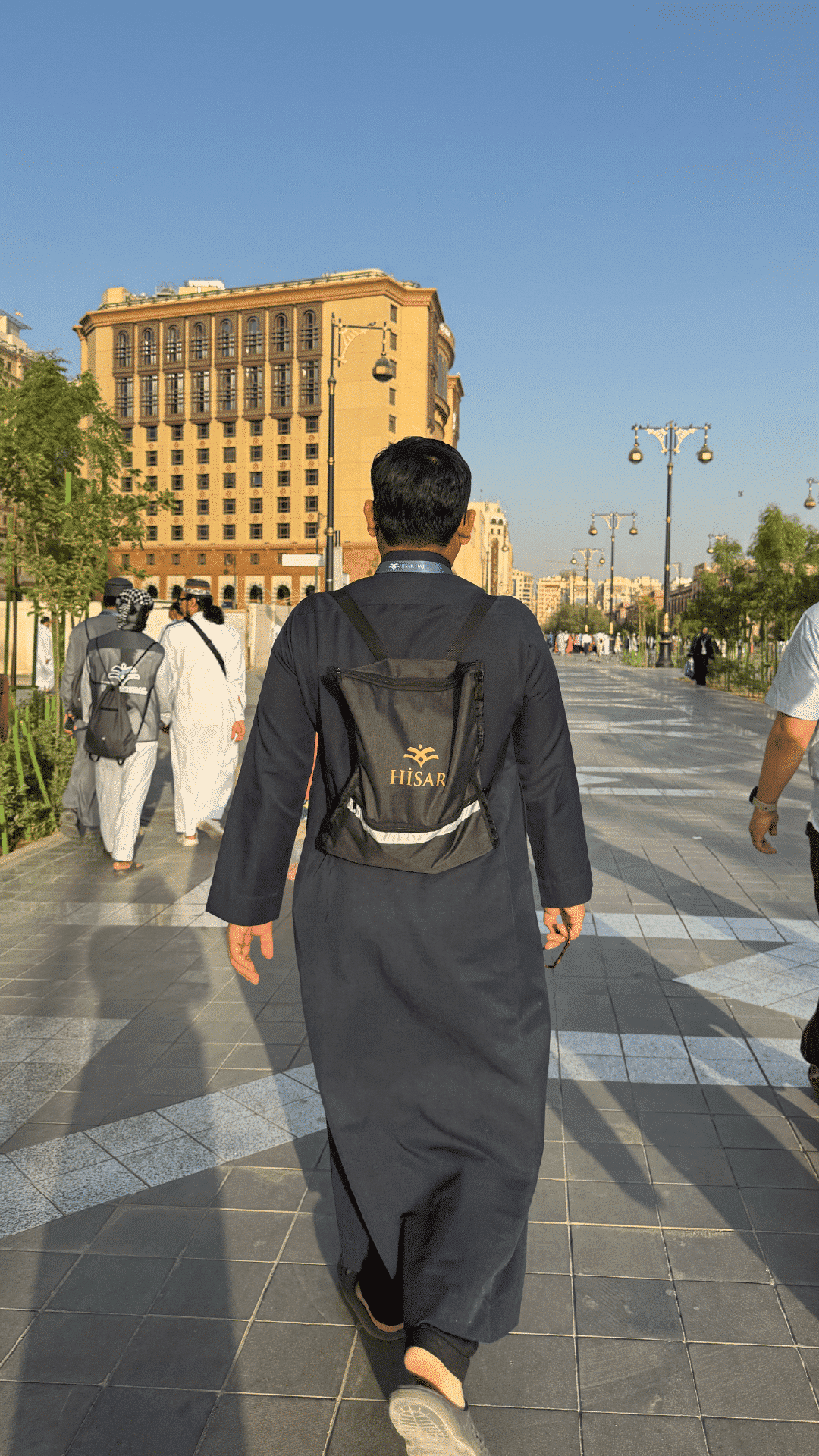
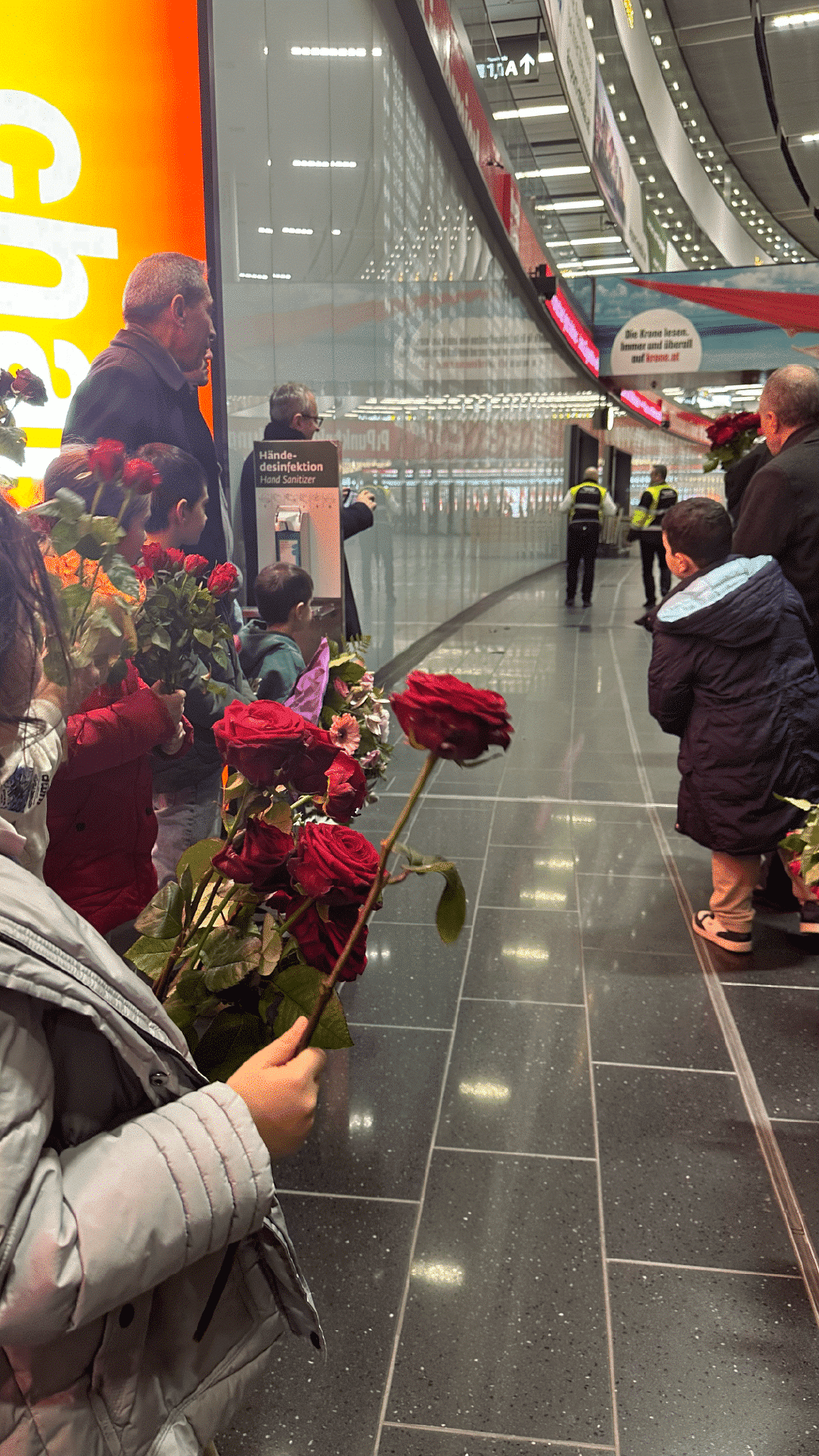

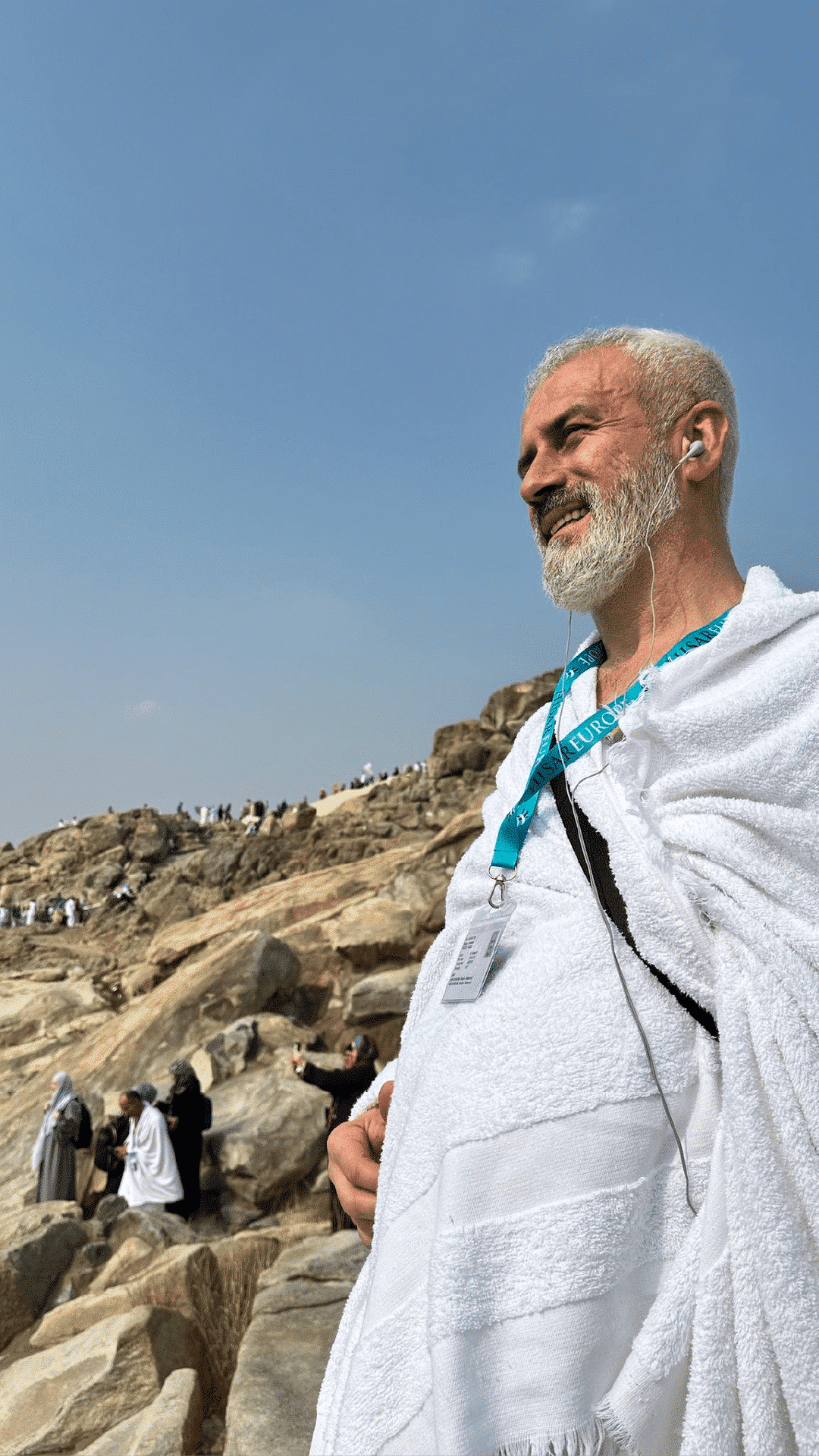
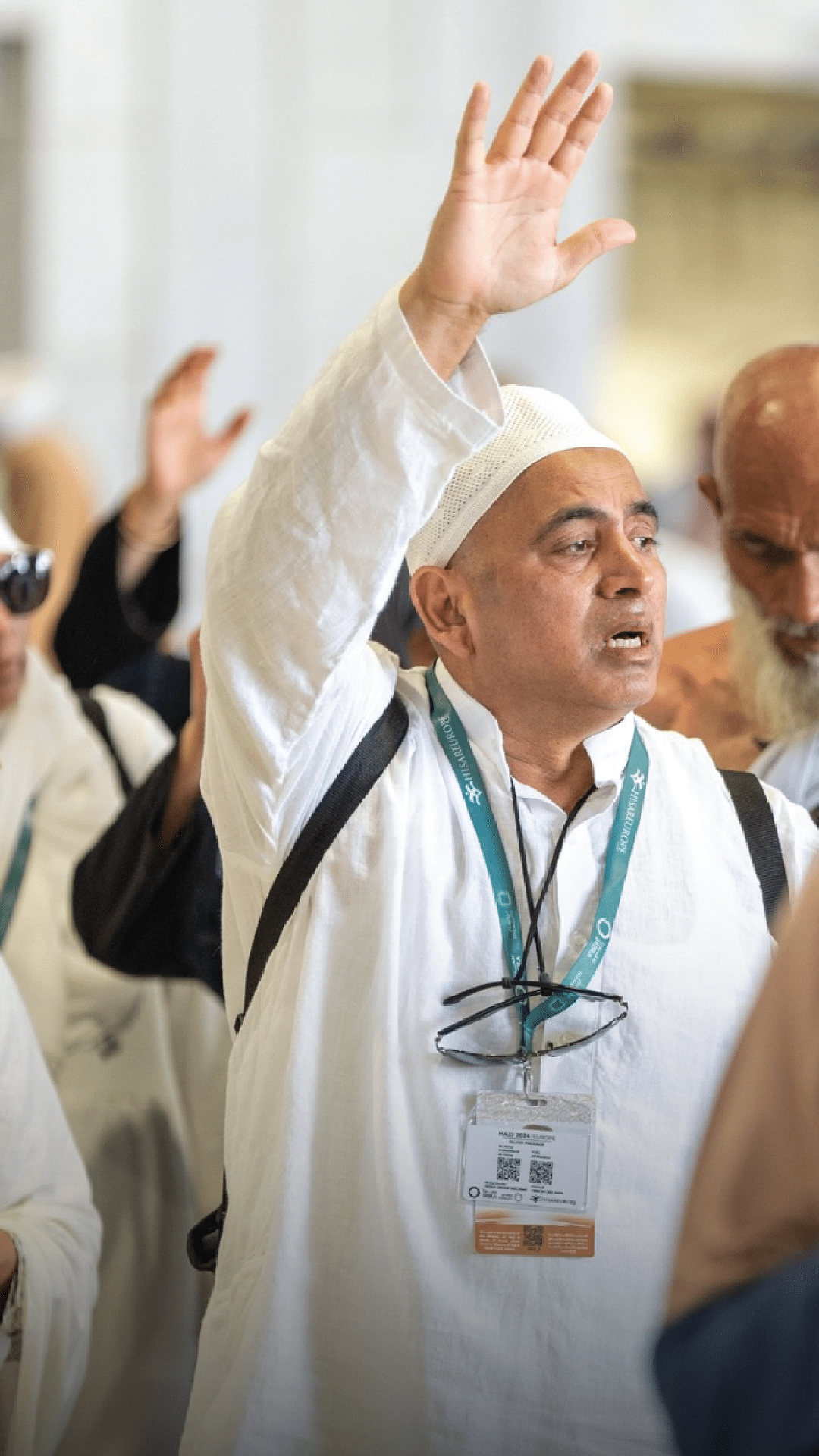


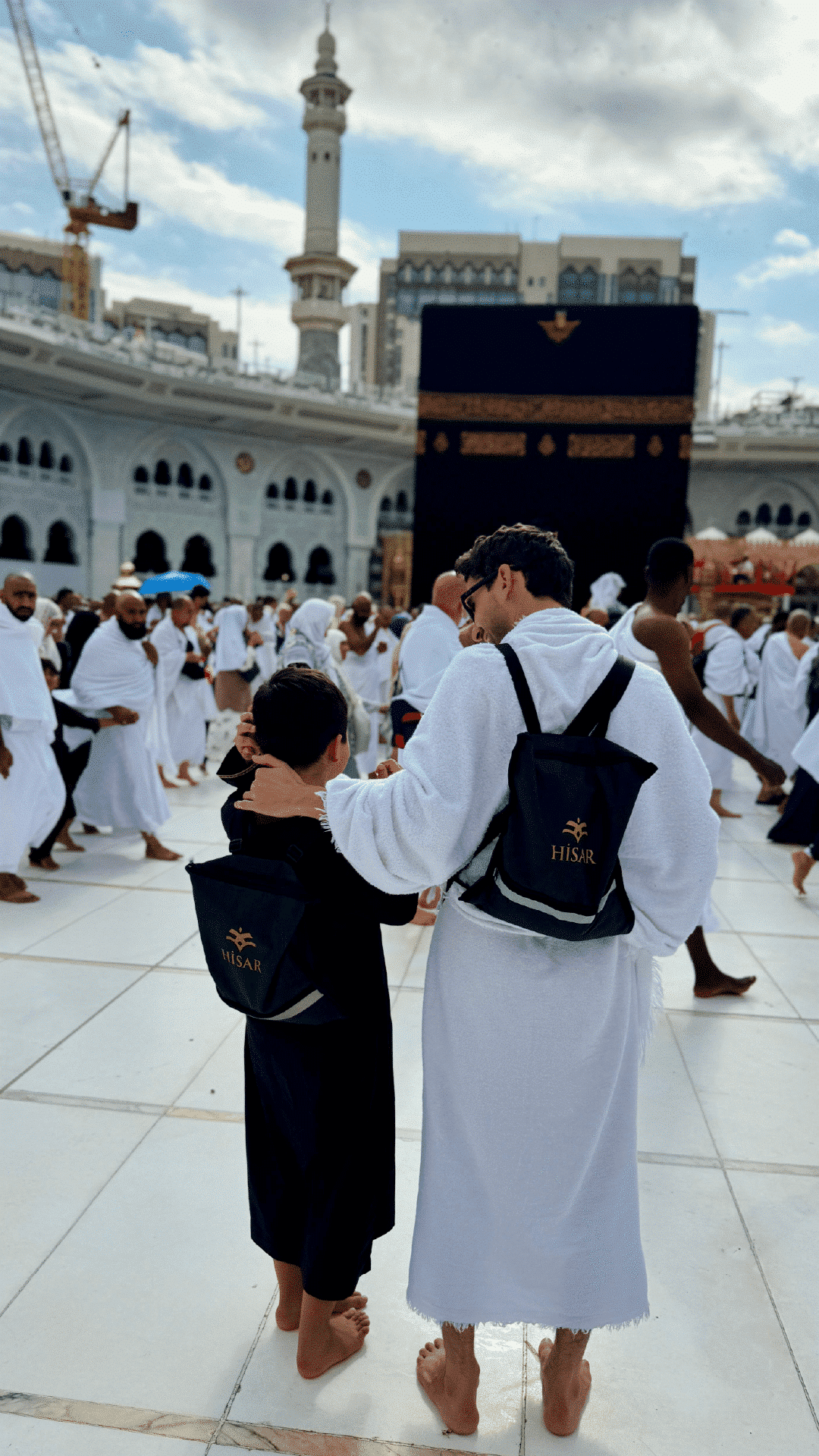
Step by Step Hajj
Frequently Asked Questions
If you can’t find answers to your questions, we are just a phone call away!
Every Muslim who has the means to ensure the livelihood of those he is obliged to take care of until he goes to Hajj and returns, who is of sound mind and is physically and mentally capable of performing this worship, and who is financially capable of going to Hajj is obliged to perform the Hajj worship.
Although there is no general age limit for Hajj worship, certain age groups may be restricted by the official authority of Saudi Arabia. In the past years, the participation of people over the age of 65 and under the age of 12 in 2025 was restricted.
For the obligatory Hajj, it is sufficient to go on Hajj once in a lifetime. However, it is also possible to perform Hajj as a nafil pilgrimage later on.
The time of Hajj is determined as the 8th, 9th and 10th days of the month of Dhu al-Hijjah according to the Hijri calendar. These days are the days when pilgrimage is obligatory.
To go to Hajj from Europe, a visa can be obtained through the Nusuk platform, which is the only authority authorised by Saudi Arabia. You need to apply individually and choose one of Hisar Europe's Hajj packages. Hisar Europe helps you in this whole process.
Hajj pilgrims enter ihram at designated points called ‘miqat’. These are the places where pilgrims pause to enter ihram before reaching Mecca. For men, ihram is a seamless two-piece white cloth (izar and rida). Women can enter ihram in their normal clothes, but they must keep their faces uncovered.
Although the duration of Hajj varies according to the accommodation and programme preferences of the individuals, it lasts at least 7 days. This period can be 10, 15, 20 or more days.
Hajj is a more comprehensive worship that must be performed at a specific time (in the month of Dhu'l-Hijjah). Umrah is a sunnah worship that can be performed at any time
- Entering ihram
- Performing Tawaf
- Sa'y
- Waqf in Arafat
- Waqf in Muzdalifah
- Stoning Satan
- Sacrifice
- Shaving
Health services during the Hajj pilgrimage are provided by both the Saudi Arabian government and the Hajj organisations. There are hospitals, health centres, emergency teams and support staff to respond to any health problems of pilgrims.
In countries such as Turkey, which has a large Muslim population and has a Diwan, Hajj procedures are determined by lottery. In European countries, registration is made through Nusuk, which is the only authorised platform, within the quotas given to the countries.
Nusuk is an official mobile application developed by the Saudi Arabian Ministry of Hajj and Umrah that facilitates Hajj and Umrah pilgrims' access to the holy sites and utilisation of services. It offers specialised Hajj packages for selected countries and allows pilgrims to carry out the entire process (registration, payment, service provider selection) through a single system.
The platform is only for Muslim pilgrims from Europe, Asia, North-South America and Oceanic countries where Hajj is permitted. Registration is open within the quotas set for that year.
After registration, documents are examined and verified. Then, payment, visa and package selection are made according to the information received through the news channels (SMS, e-mail, notification via the platform).
The platform presents all stages step by step, from the registration process to the pilgrimage programme:
- Account creation,
- Uploading the necessary documents,
- Application,
- Validation,
- Package selection,
- E-wallet (prepayment) top-up,
- Service provider selection,
- Package booking,
- Review of the itinerary
Description. Nusuk Hajj contains comprehensive guidance on health, travel and safety precautions for pilgrims. Emergency content from external sources such as the U.S. State Department is also recommended.
Yes, the platform and the Saudi government now allow women to perform Hajj without a mahram. Although in recent years the authorities have been issuing visas for women without a mahram, it is still recommended that a woman be accompanied by her husband or a trusted mahram.







